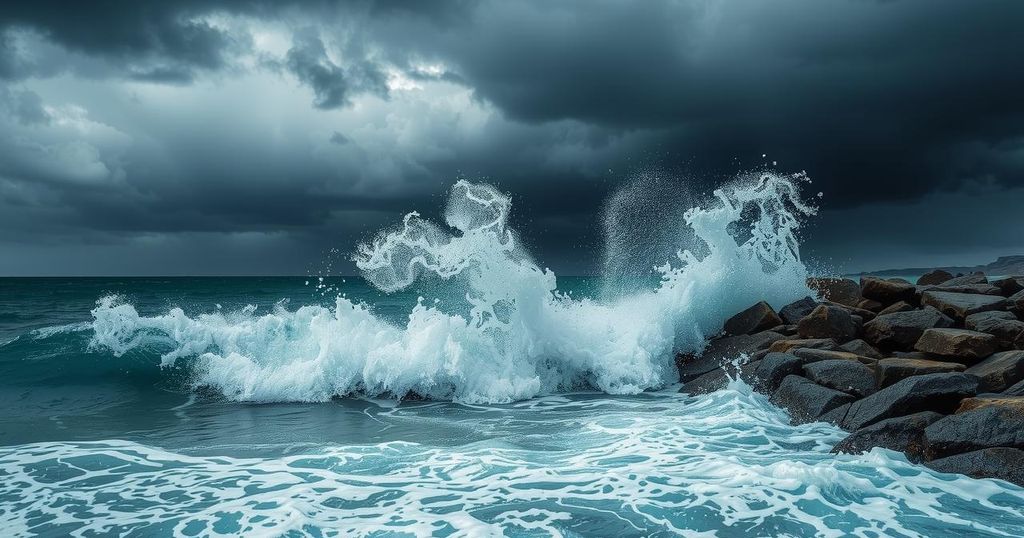Cyclone Garance struck Réunion Island on February 28, causing flooding and significant destruction. At least four people have died, and hundreds of thousands are without water and electricity. Emergency response efforts are underway, with the French government deploying aid to assist affected residents. This cyclone is noted to be the strongest to hit the region since 1989.
Cyclone Garance has caused devastating flooding on Réunion Island, a French territory in the Indian Ocean, resulting in the deaths of at least four individuals. The cyclone hit on February 28, striking the northern side of the island, where wind speeds surpassed 200 kilometers per hour. Authorities reported widespread destruction, including flash floods, mudslides, and power outages affecting over 310,000 residents who were left without water and electricity.
In response to the emergency, nearly 1,000 inhabitants sought refuge in temporary shelters, as the storm is considered the most powerful to impact the island since Tropical Cyclone Firinga in January 1989. The French government deployed 200 firefighters and aid workers from mainland France and Mayotte to assist in relief efforts. Tarpaulins have been distributed to the hardest-hit regions to provide makeshift shelter for displaced residents.
The aftermath of the cyclone has severely impacted the island’s infrastructure, with blocked roads due to fallen trees necessitating urgent clearance efforts. Both Réunion and Mauritius were compelled to close their airports due to the adverse weather conditions. Cyclone Garance formed as one of six simultaneously active tropical cyclones in the Southern Hemisphere, alongside others affecting regions such as Madagascar and Australia.
The repercussions of Cyclone Garance on Réunion Island exemplify the dangers posed by natural disasters, underscoring the urgent need for effective disaster response and infrastructure resilience. With significant portions of the population affected, the collaborative efforts from the French government and local authorities remain essential in providing relief and restoring normalcy to the island. The cyclone’s strength reiterates the unpredictable nature of tropical storms, calling attention to the importance of preparedness in vulnerable regions.
Original Source: news.mongabay.com




